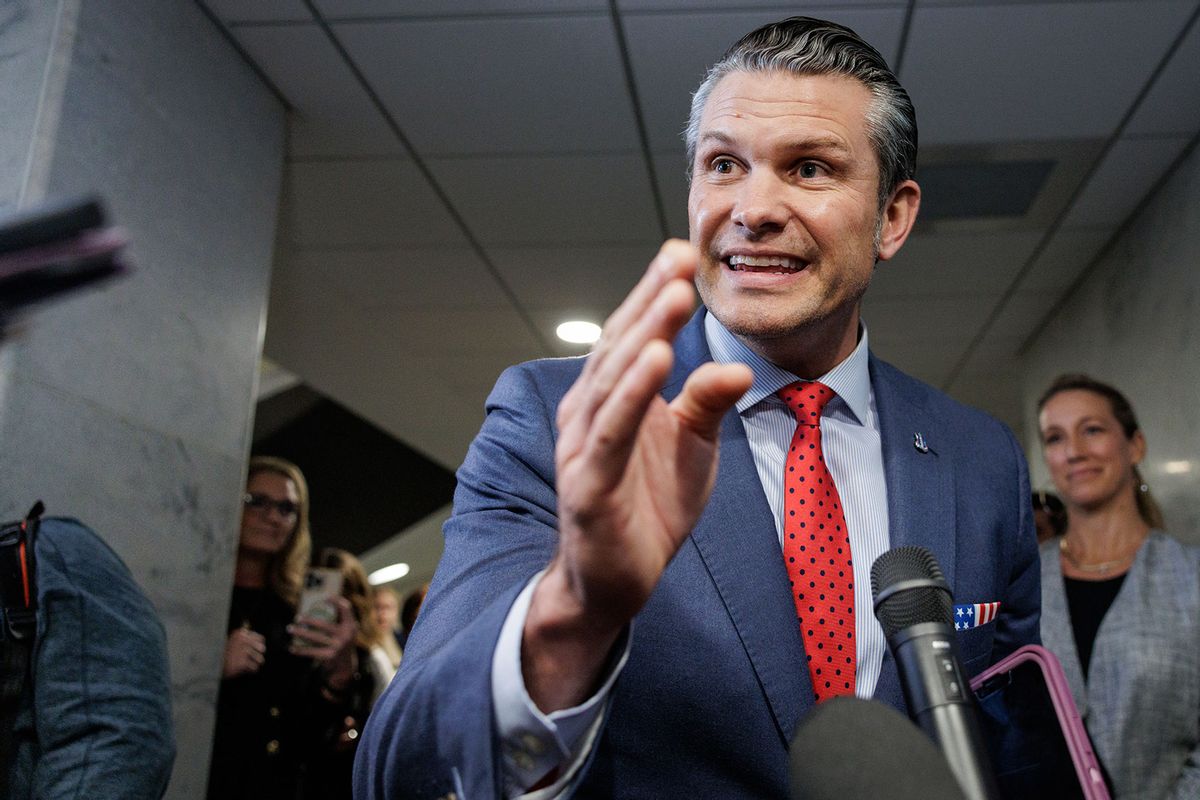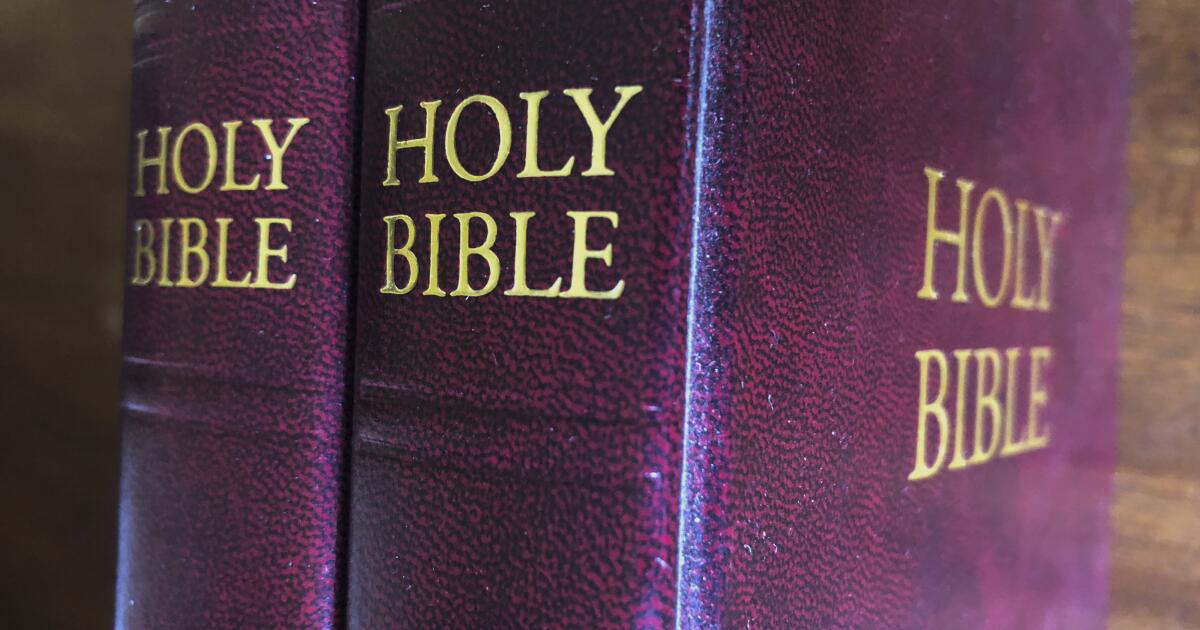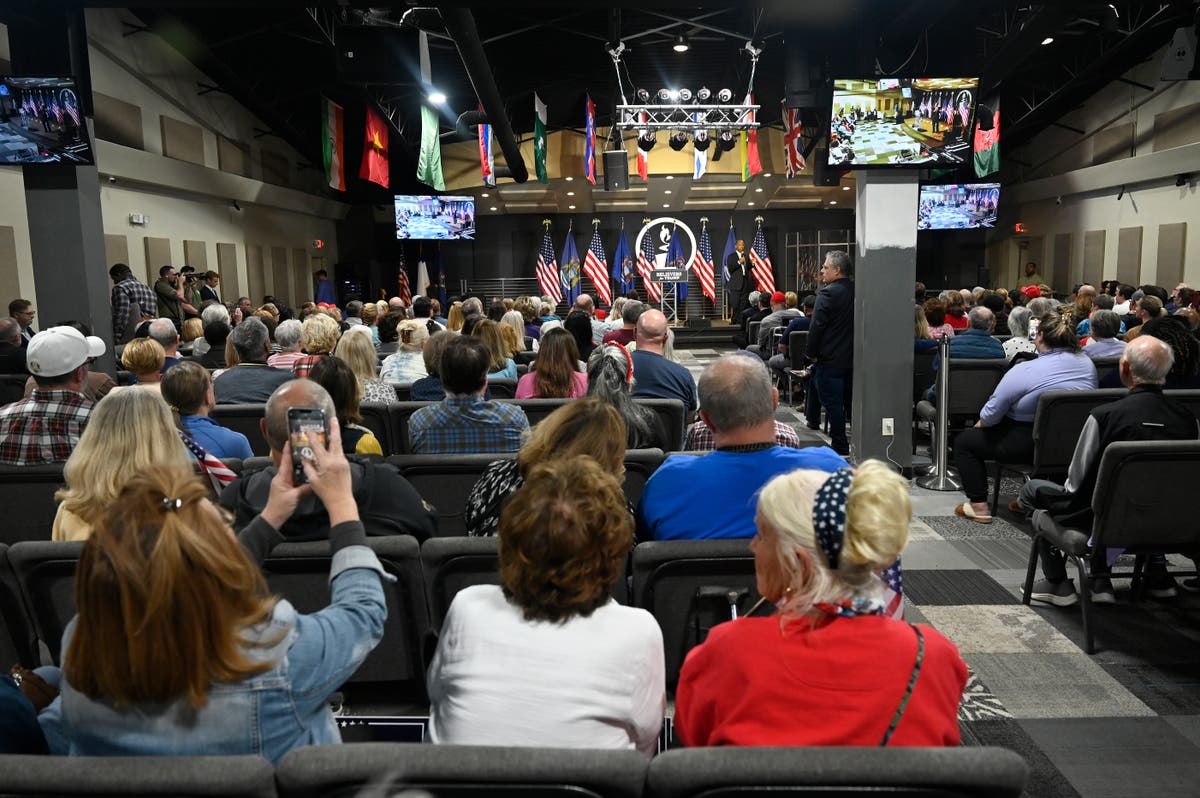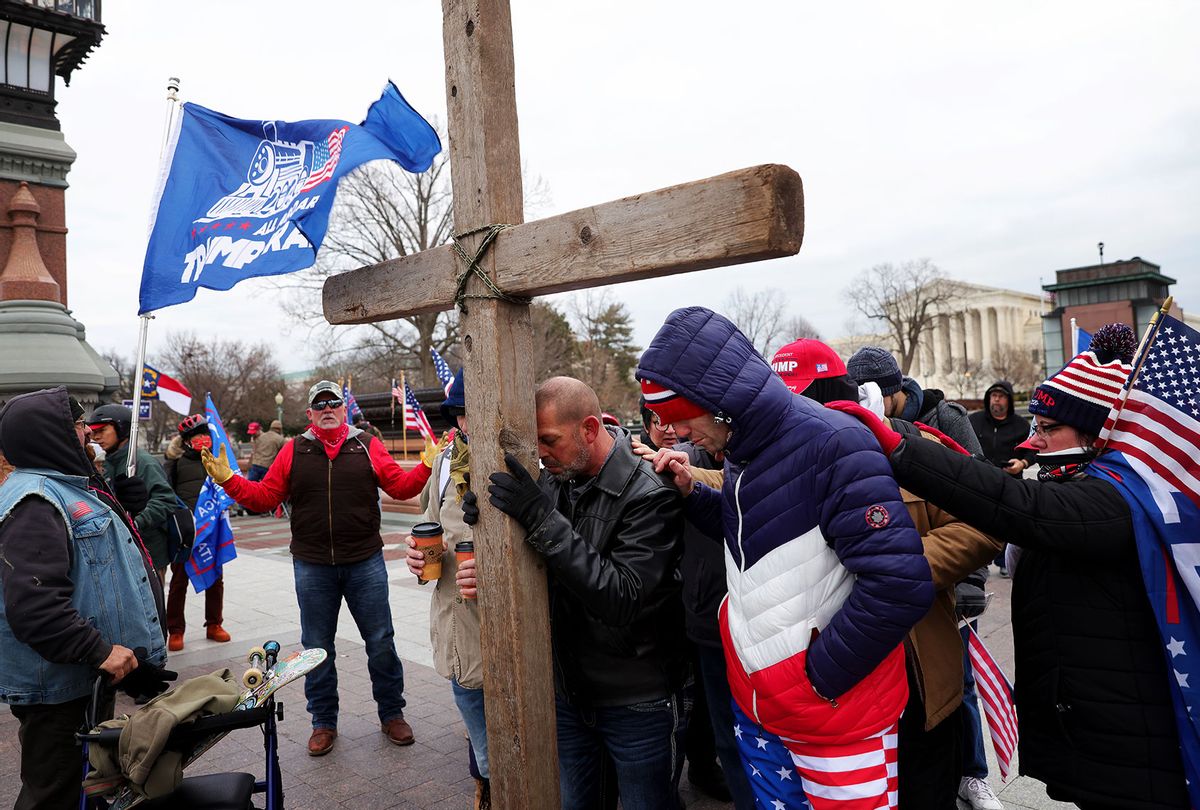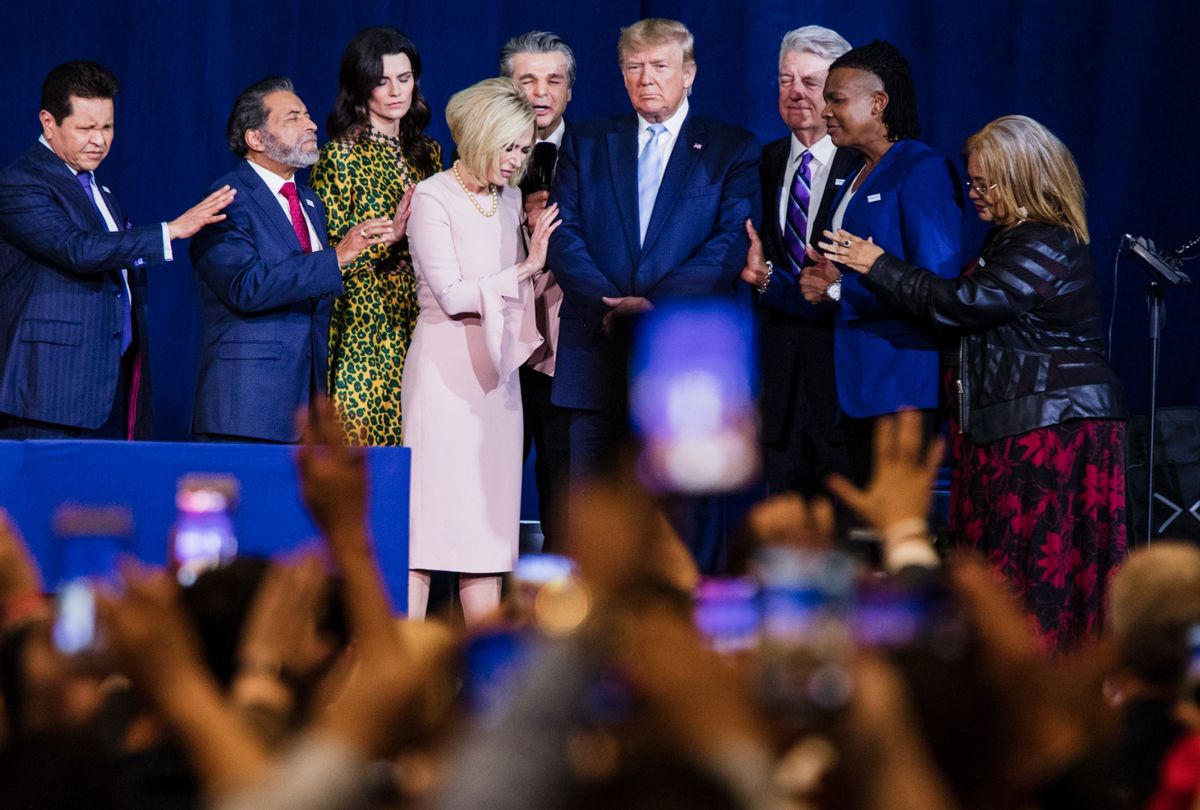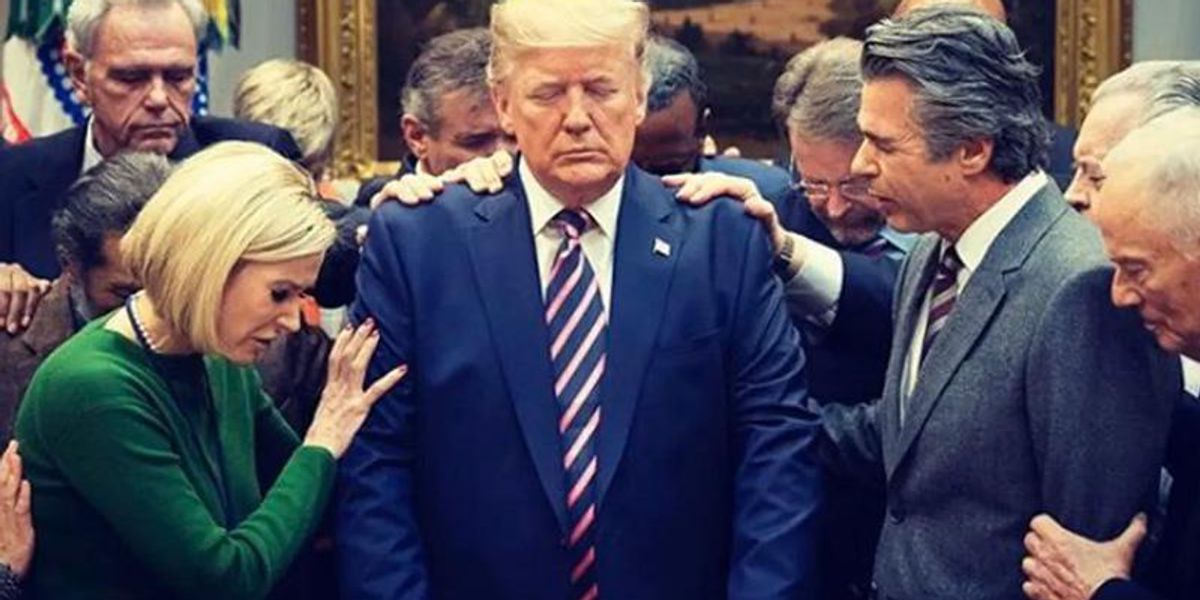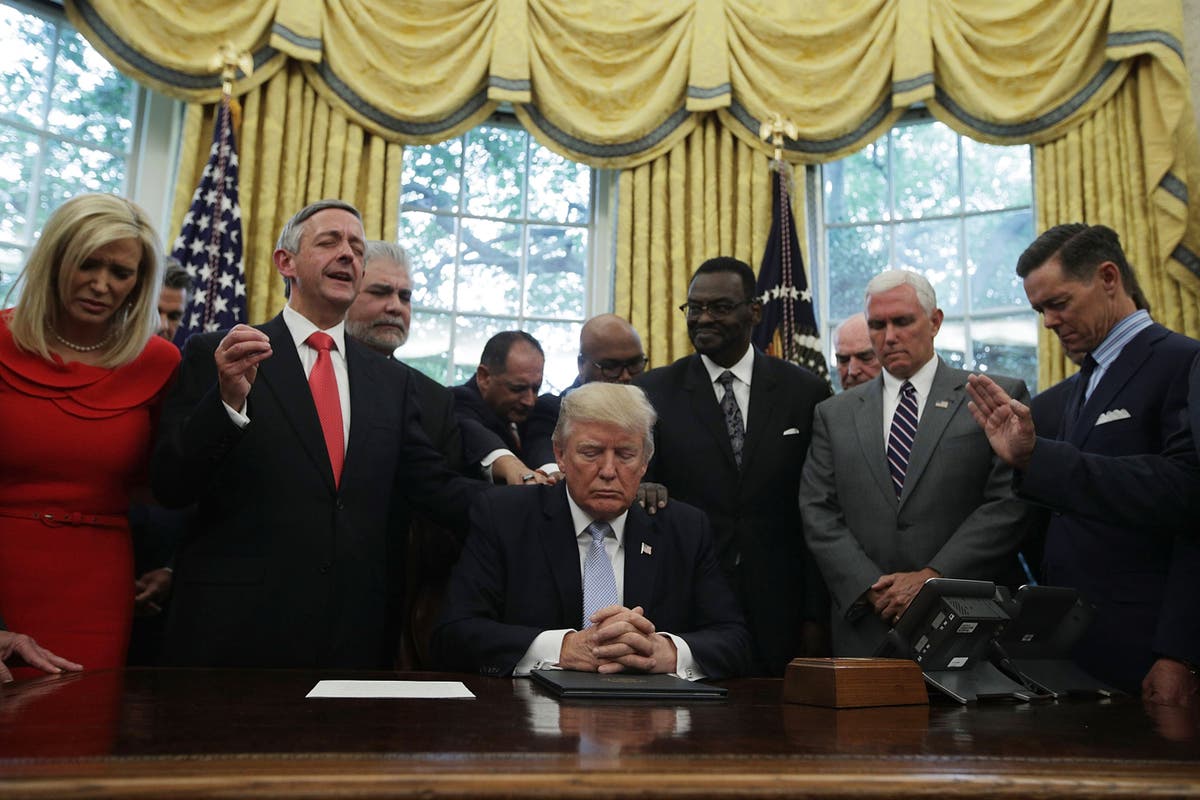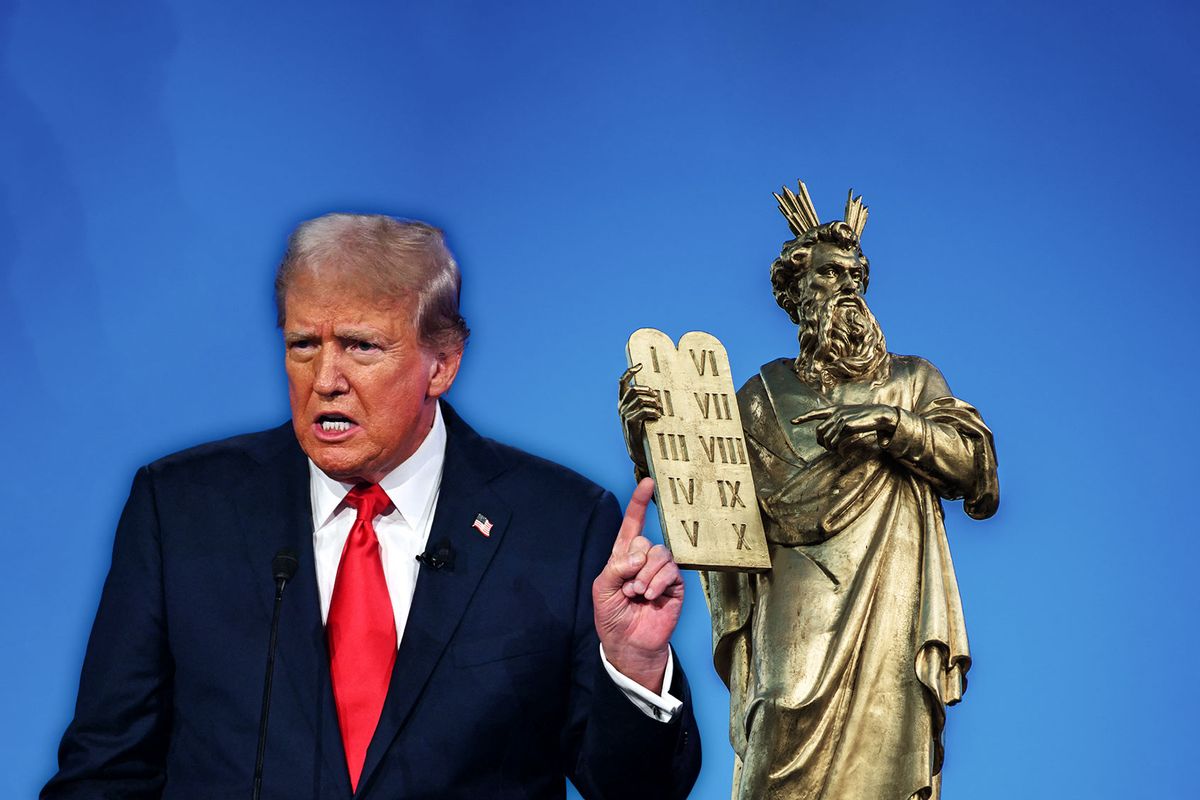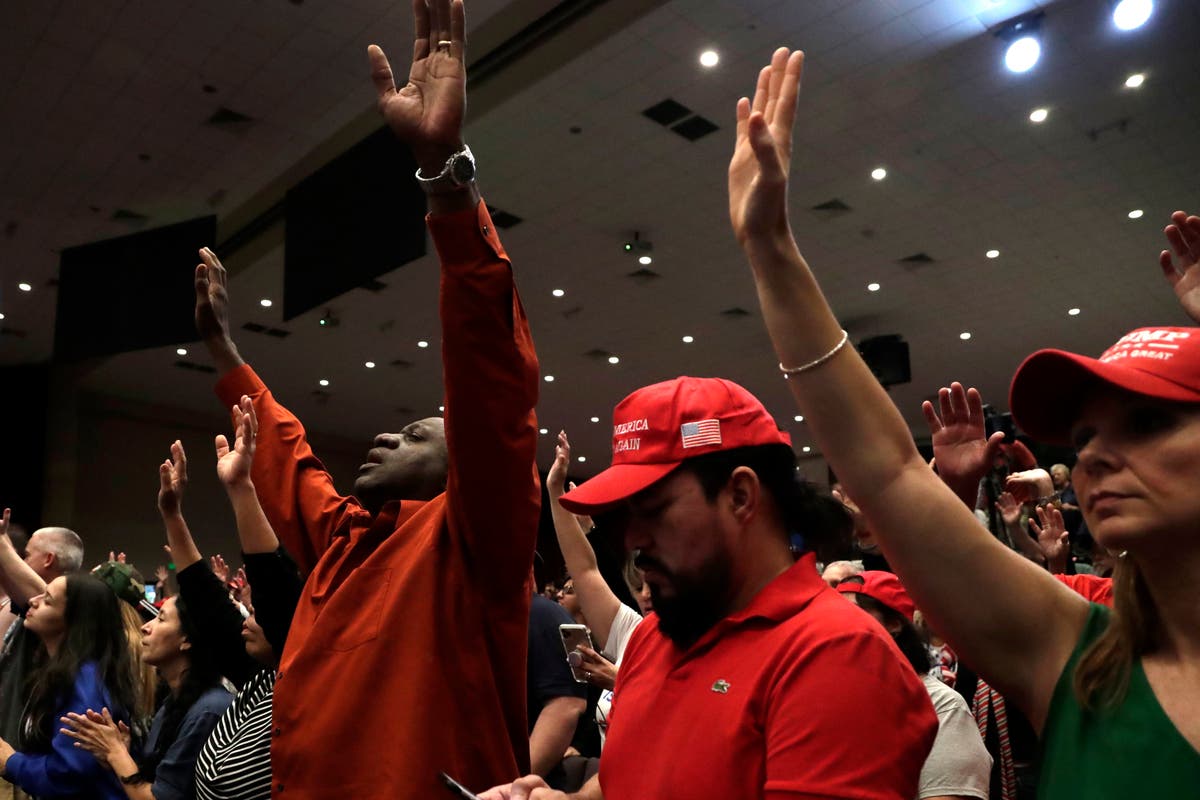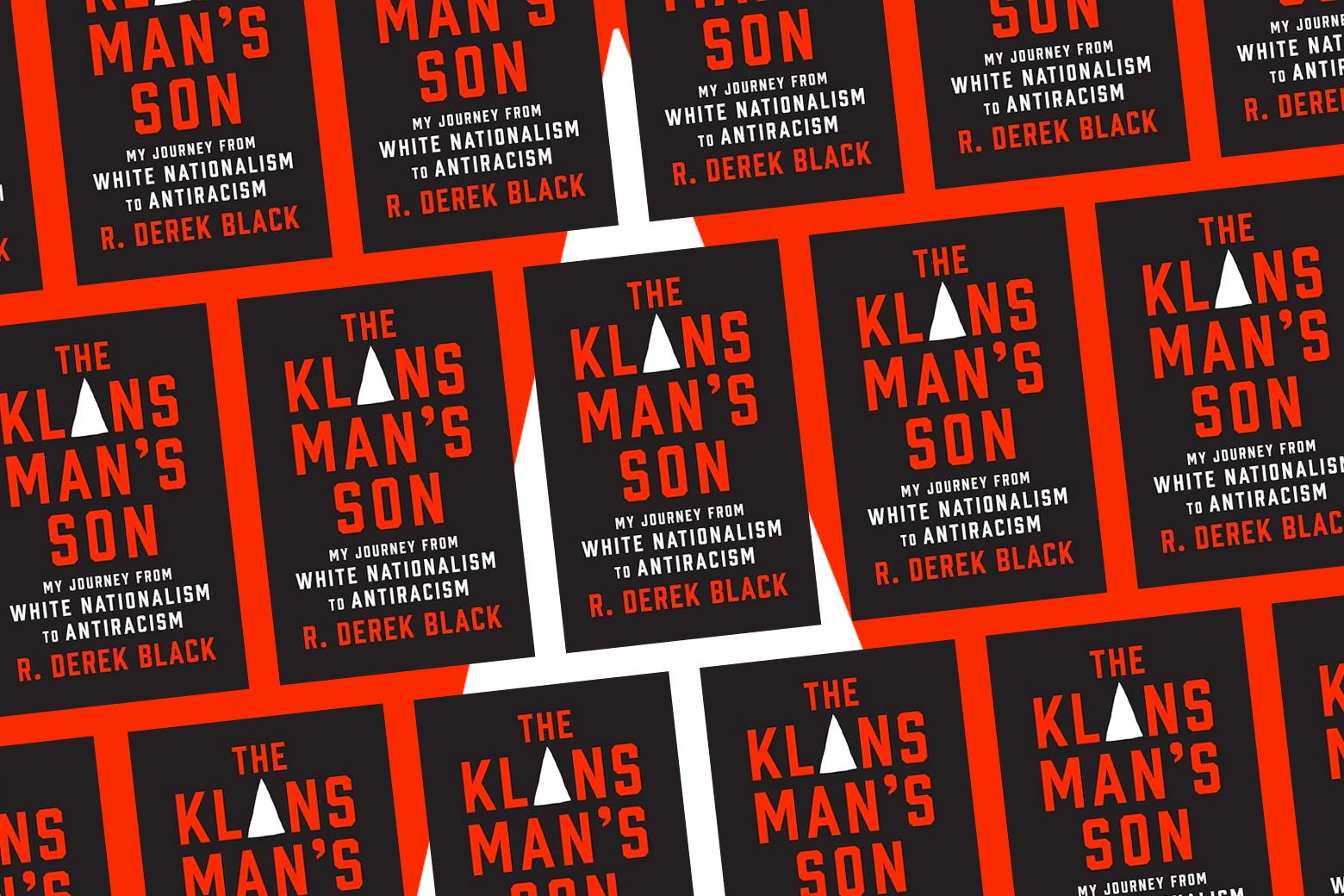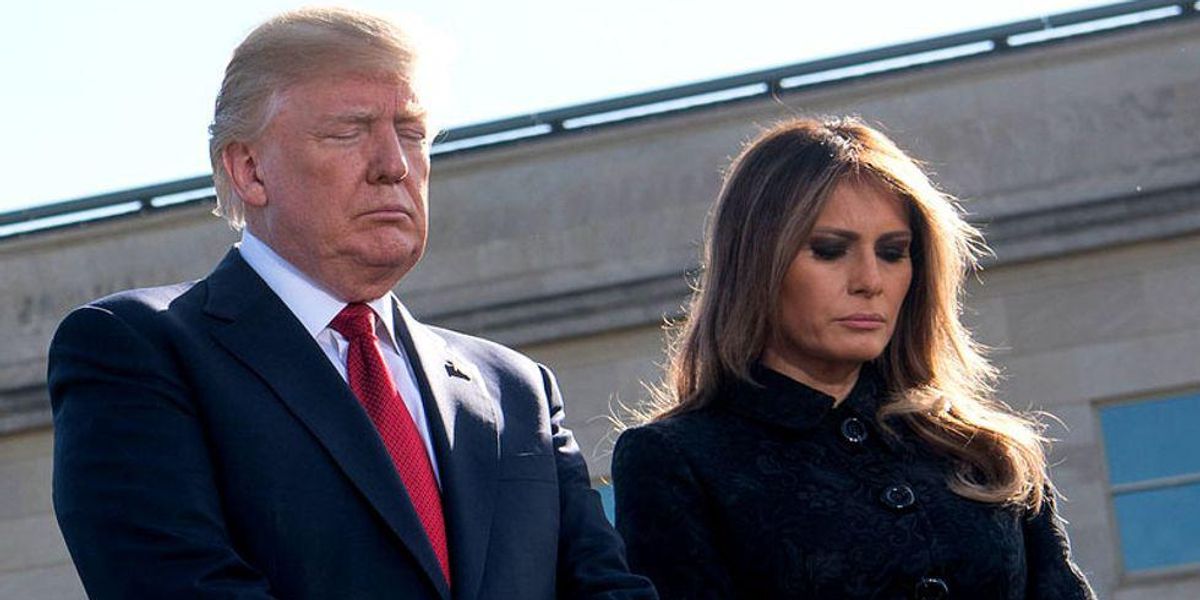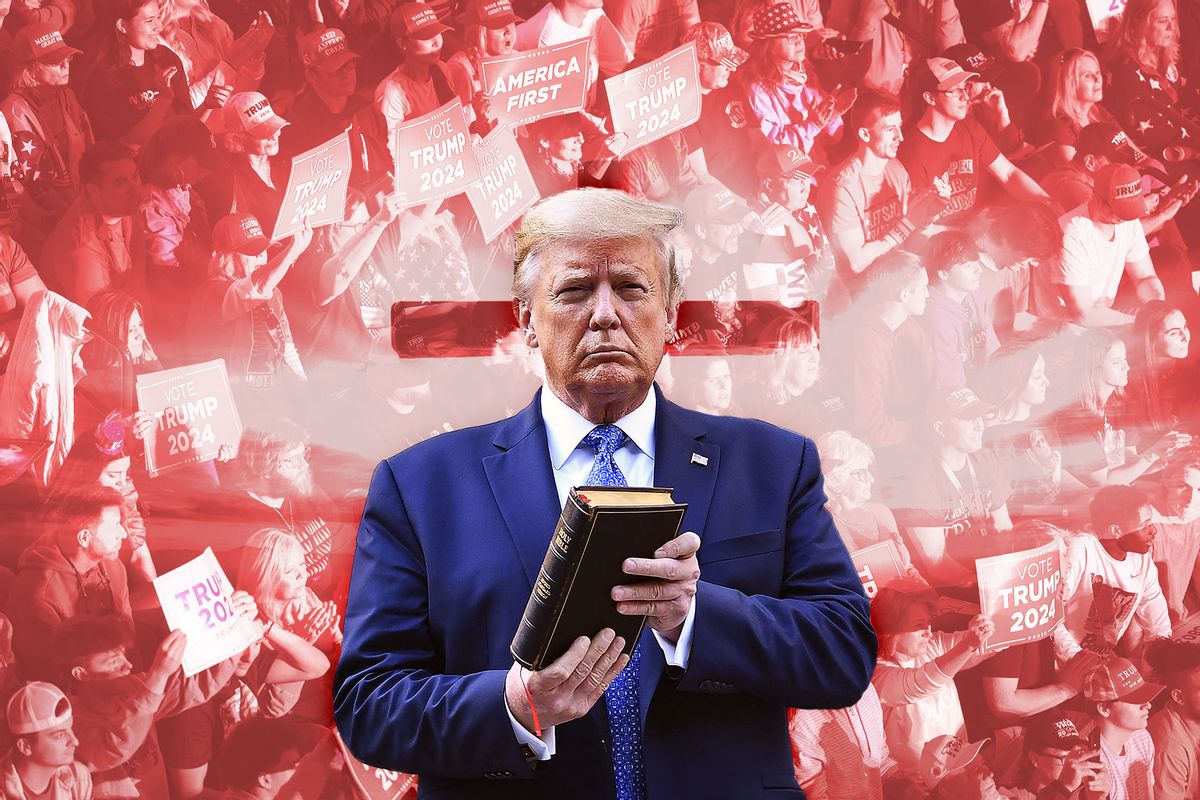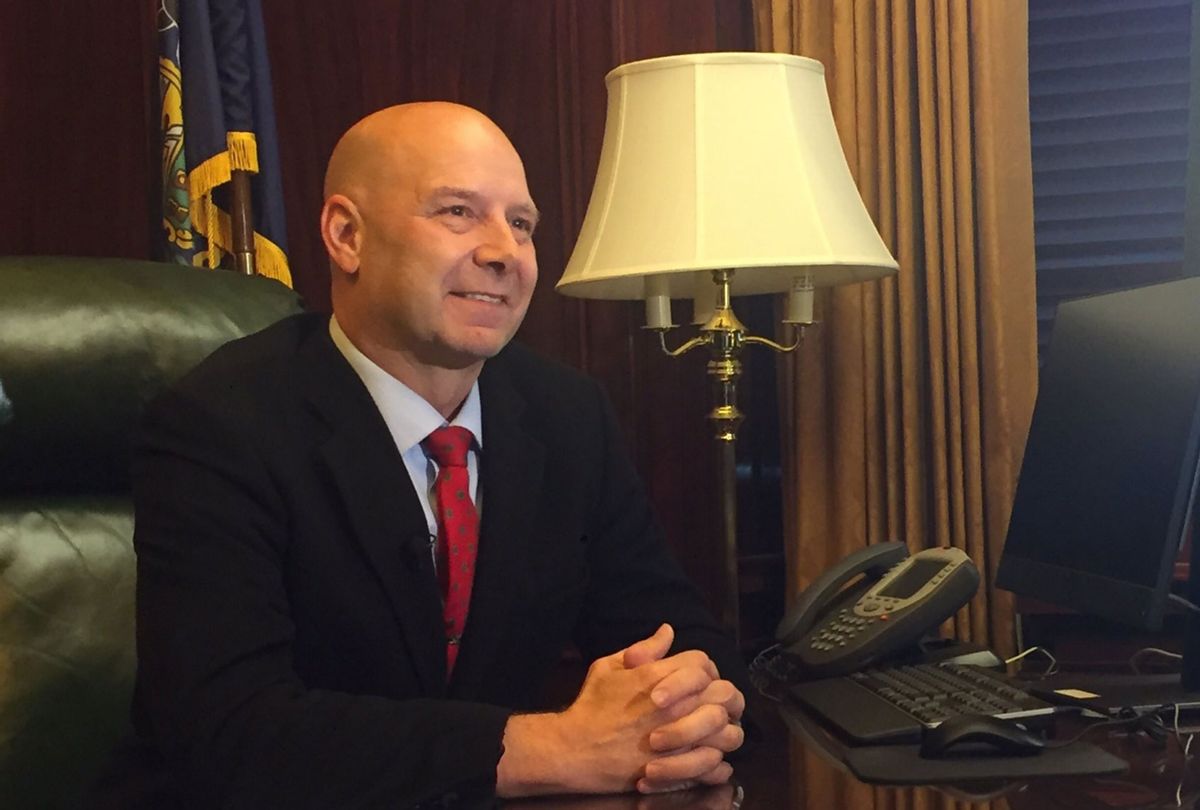
Trump's army of God: Doug Mastriano and the Christian nationalist attack on democracy
SalonOn May 9, the New Yorker published a feature story by Pulitzer winner Eliza Griswold about Pennsylvania state Sen. Doug Mastriano, who could well be the Republican nominee for governor next year, as a flagship example of the swelling power of Christian nationalism within today's GOP. The religious movement Griswold mentions — the New Apostolic Reformation — could be more clearly defined, and doing that can shed light on Christian nationalism's lesser-known, but more nefarious fellow-traveler, Dominionism — a creed that adds two more elements: a belief in "biblical law," as adherents define it, and the religious supremacy of their version of Christianity. "Fusing Christianity and Americanism together to create a potent cocktail of Evangelical Christian Nationalism" was part of Billy Graham's lifelong work, Butler wrote. Or it may reflect ignorance of what the term means and why academics study it, which of course is "because it is a powerful force in our culture.. "My sense is that they generally fear anything that might make them reflect on their personal beliefs and actions and consider harm they might be doing to Christianity and democracy in the U.S." This idea that Christian nationalism is actually harmful to Christianity, is a central concern of Christian critics and opponents of Christian nationalism, as seen in John Fea's book, " Believe Me: The Evangelical Road to Donald Trump," for example. One can clearly criticize the NAR without "attacking Christianity," just as it's legitimate for believing Christians to criticize Christian nationalism as damaging to their faith by shifting focus onto divisive fights over flawed human creations.
History of this topic

"Trump has no real mandate for what he is planning": The push for Christian nationalism may backfire
Salon
‘Devil, we’ve had enough’: Inside the Christian nationalist movement to outlaw abortion
The Independent
Trump's transformation into a religious totem turns Christian nationalism toxic
Salon
Clergy argues rise of white Christian nationalism poses threat to democracy
Raw Story
Column: The once-secretive right-wing ideology emerging as an overt threat to American democracy
LA Times
Josh Hawley: ‘I’m advocating Christian nationalism’
Raw Story
MAGA’s Christian nationalism excludes a vast majority of Christianity
Raw Story
"I’m a very proud Christian”: Will religion be enough to save Donald Trump?
Salon
Trump tells right-wing Christians they will have power at 'level you've never used before'
Raw Story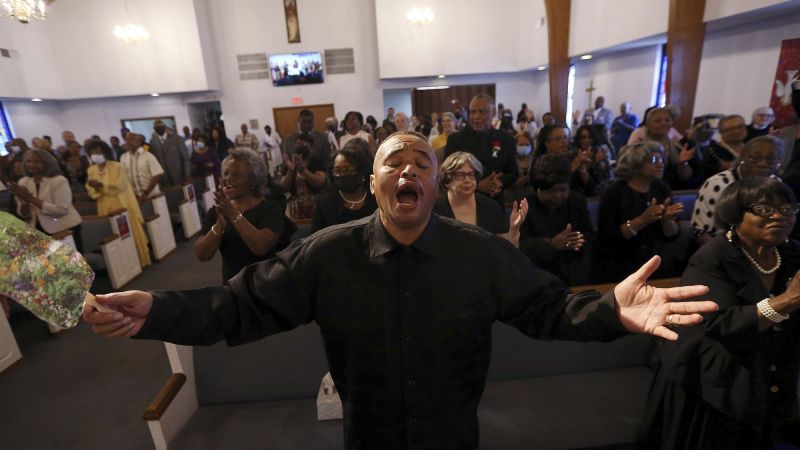
The relentless focus on White Christian nationalism is spreading a racist myth
CNN
How Republicans convinced themselves America was meant to be a "Christian nation"
Salon
America’s Christian nationalist spectre
Hindustan Times
Christian nationalists have awoken a fierce Christian resistance movement: report
Raw Story
Will Republicans become a Christian nationalist party? Can they win if they do?
LA Times
More than half of Republicans support Christian nationalism, according to a new survey
NPR
In Pa. governor’s race, faith surfaces in contrasting ways
Associated Press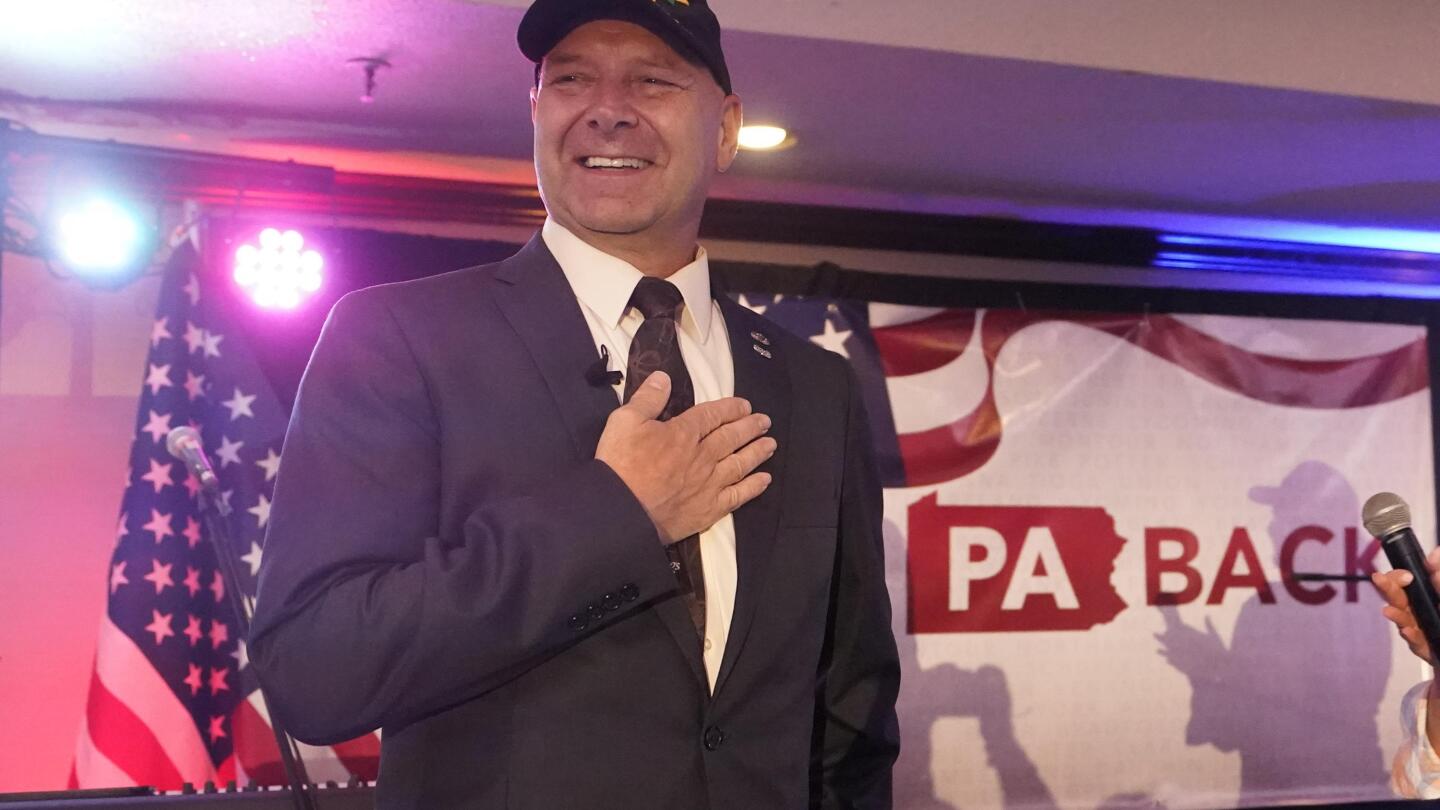
Christian nationalism on the rise in some GOP campaigns
Associated Press
Christian nationalism on the rise in some GOP campaigns
LA Times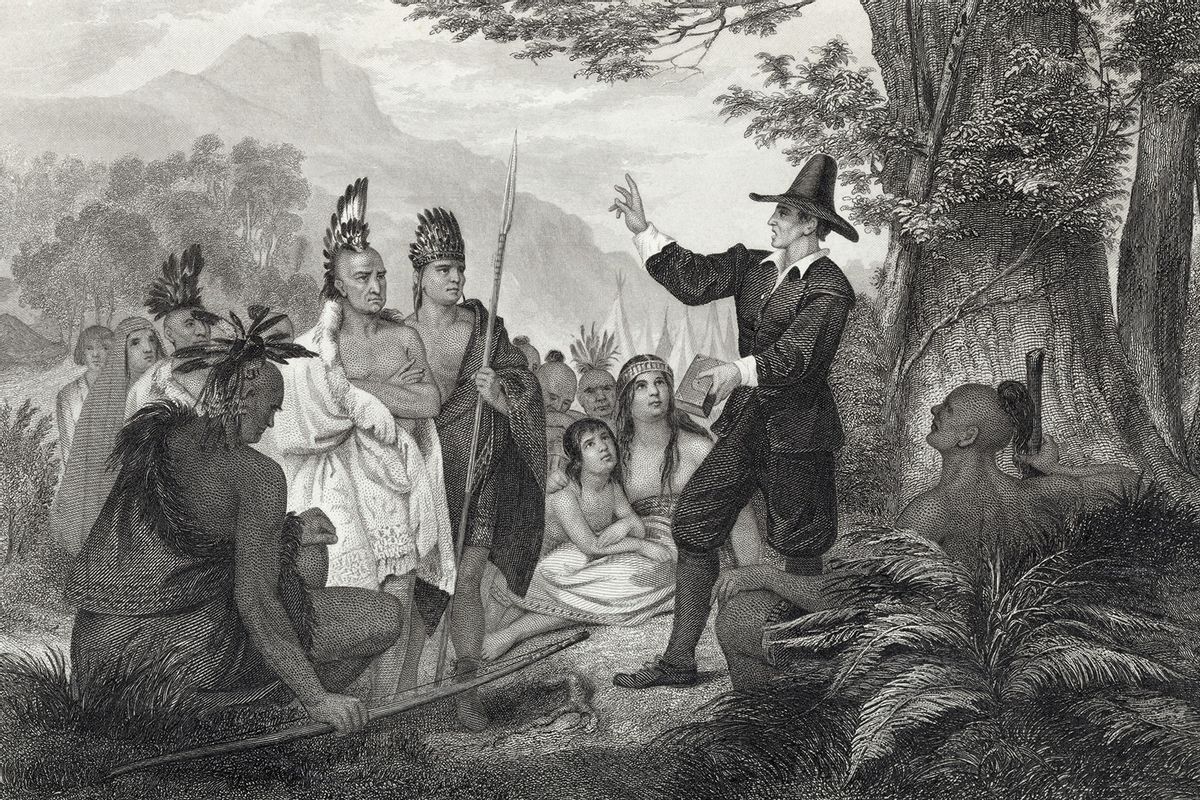
From the Pilgrims to QAnon: Christian nationalism is the "asteroid coming for democracy"
Salon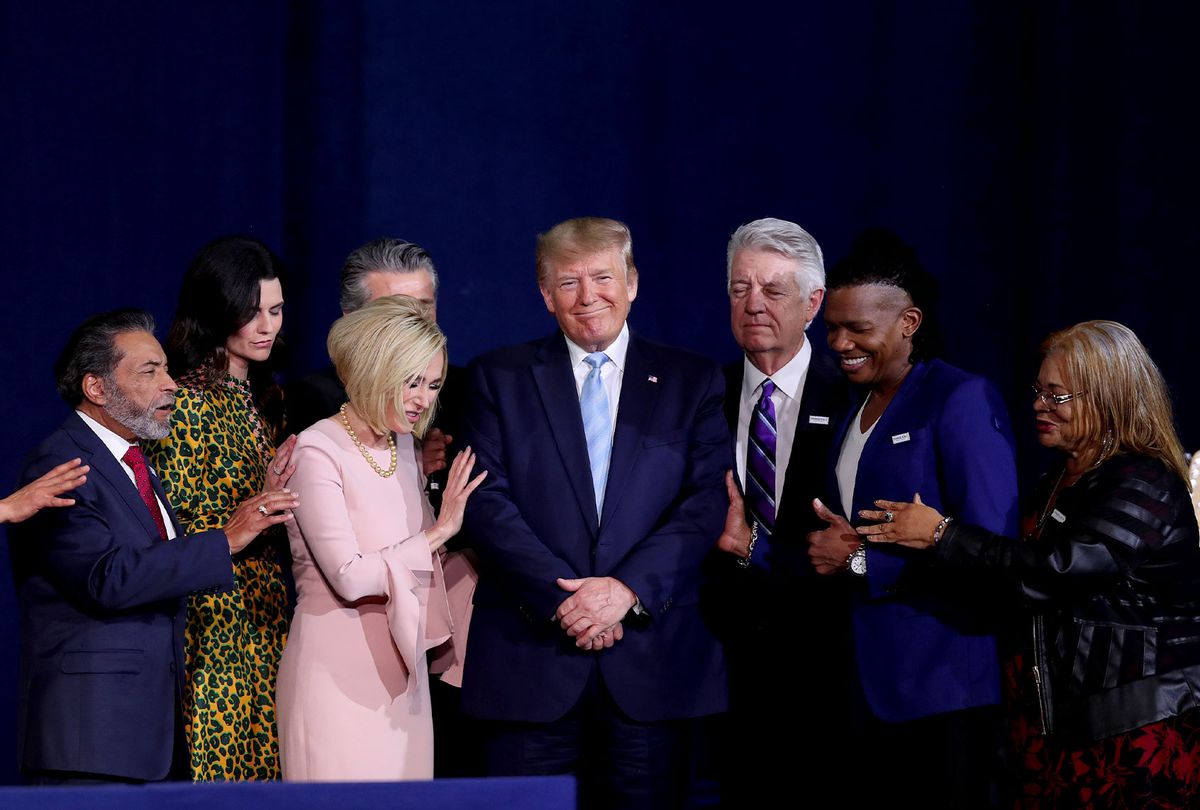
Christian nationalism is rooted in stupid tough-guy misogyny: What would Jesus say?
Salon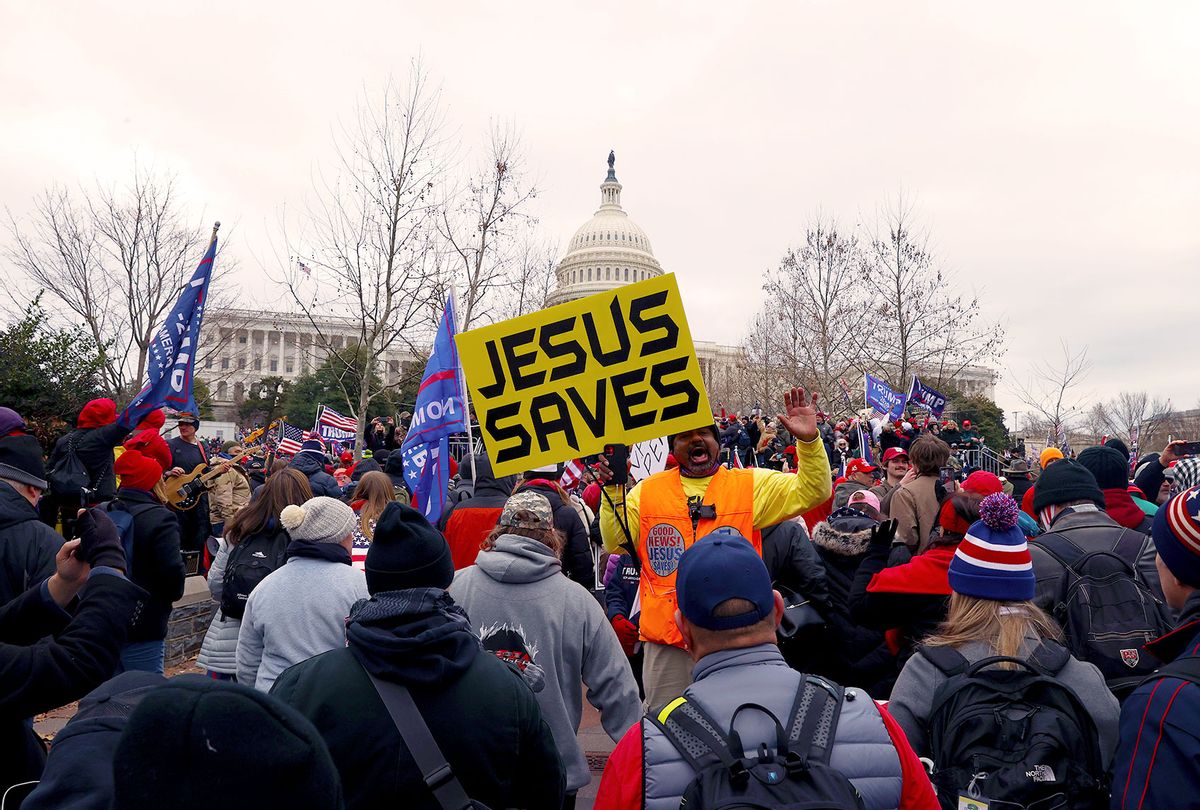
Christian nationalism drove Jan. 6: Now it's embraced the Big Lie, and wants to conquer America
Salon
Christian nationalism is still thriving — and is a force for returning Trump to power
NPR
The white Christian nationalism tearing America apart at the seams
Raw Story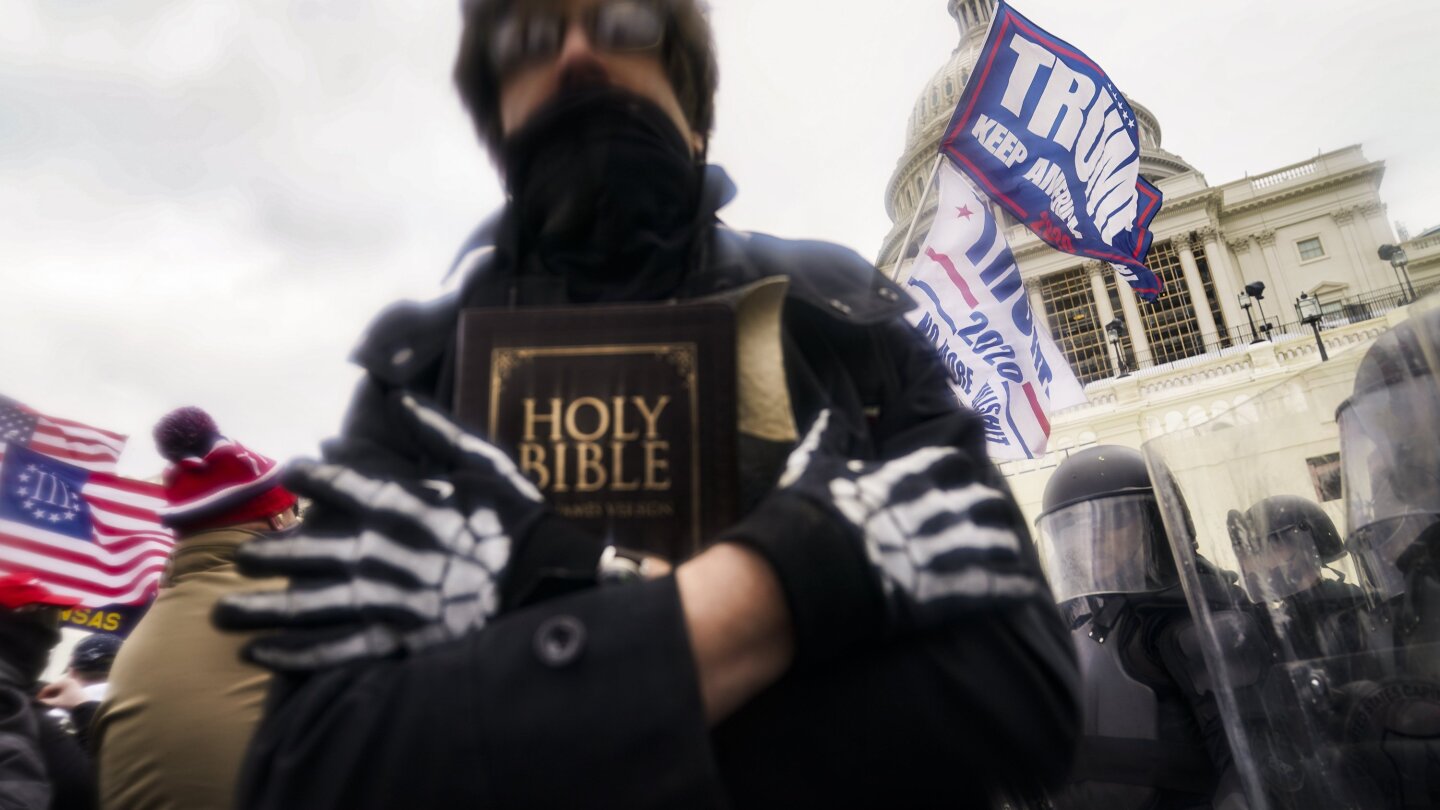
Christianity on display at Capitol riot sparks new debate
Associated PressDiscover Related

